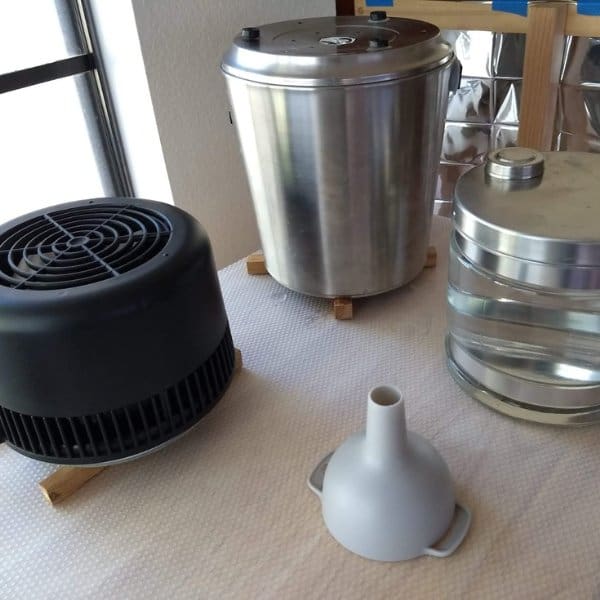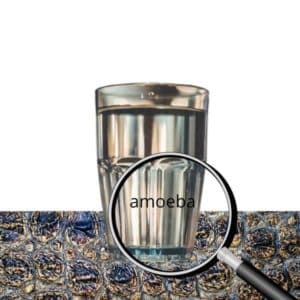What Are Water Distillers, and How Do They Work?
Water distillers are water treatment systems that purify water by removing impurities and biological contaminants. These devices heat water until it reaches boiling point, turning it into steam. The steam is then condensed back into liquid form and collected in a separate container, leaving behind any impurities that do not evaporate.
This boiling process of distillation removes various types of contaminants from the water, such as minerals, bacteria, viruses, chemicals, and other pollutants that may be present. This makes distilled pure water suitable to drink or use in medical procedures or industrial processes.
Water distillers come in various sizes and shapes to cater to different needs. Some models can produce large quantities of purified water, while others are designed for personal use at home or on the go. Here is a list of the best water distillers that you can go through.
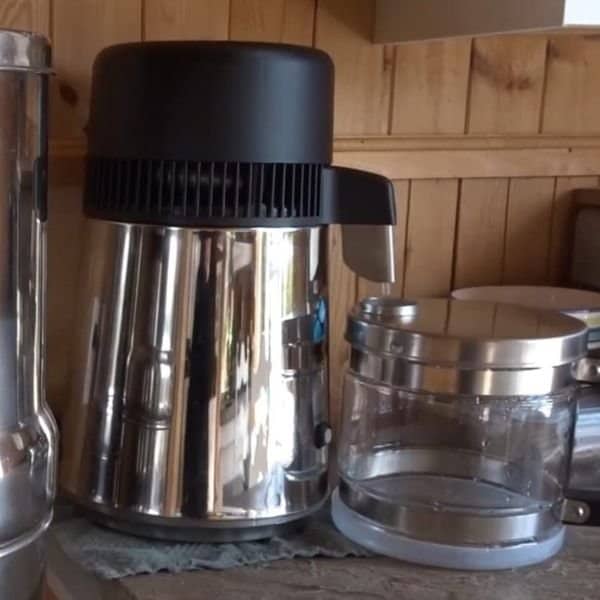
What Contaminants Do Water Distillers Remove or Reduce?
Water distillers filter out impurities from water by boiling and condensing the water vapor. The process eliminates many contaminants, including bacteria, viruses, minerals, chemicals, and heavy metals.
- One major class of contaminants removed during distillation is volatile organic compounds (VOCs), chemicals that can evaporate into the air at room temperature. VOCs often arise from industrial activities or chemical spills and can cause health problems such as respiratory irritation and cancer.
- Distillers also remove chlorine and its byproducts like trihalomethanes (THMs), and disinfectants added to water but have been linked to increased risk of bladder cancer.
- Distillers can also effectively reduce levels of fluoride in drinking water.
Advantages of Water Distillers
There are many advantages of water distillers, such as:
Provides purified water
The main advantage of using a water distiller is that it provides purified water free from impurities such as bacteria, viruses, chemicals, and minerals. The distillation process involves boiling the water, collecting the steam produced, and condensing it into liquid form.
The result is a pure form of H2O without any contaminants. Drinking distilled water is safer than tap or bottled water, which can contain harmful substances like lead, chlorine, fluoride, or pesticides. Furthermore, distilled water has a neutral pH level, making it ideal for people with sensitive digestive systems.
Easy to setup system
Another advantage of using a water distiller is that it requires no special skills or knowledge. The process is simple enough that anyone can learn how to use it quickly. Additionally, most modern water distillers come with user-friendly instructions that make the process even more straightforward.
The ease with which you can set up and operate a water distillation system means you don’t need to hire professionals or spend money on expensive equipment to enjoy clean drinking water.
Eliminates the cost of buying bottled water
The main advantage of using a water distiller is that it eliminates the cost of buying bottled water. Purchasing bottled water can be expensive and inconvenient, especially if you live in an area with limited access to safe drinking water. Furthermore, many plastic bottles end up in landfills or oceans once discarded; by opting for a water distiller, you are also doing your part in reducing your carbon footprint.
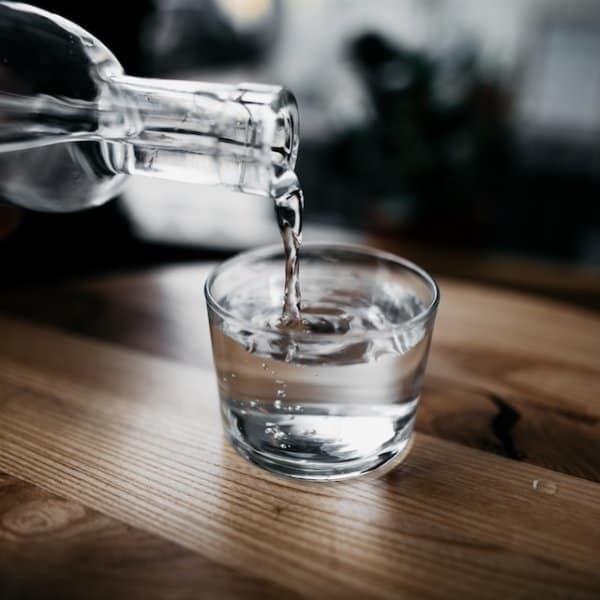
Disadvantages of Water Distillers
However, with advantages, there come disadvantages as well, such as:
Water tastes bland
While water distillers can remove many impurities from the water, one of the main disadvantages is that it has a bland taste. This is because, during the distillation process, minerals and other essential elements are also removed along with impurities.
The taste of water is important to many people, and drinking distilled water without any additional flavor can be challenging. Additionally, removing minerals like calcium and magnesium could harm health as these elements are essential for bone growth and maintaining good overall health.
Consumes electricity
Another main disadvantage of using a water distiller is that it consumes electricity. Distillation requires heating water and turning it into steam, which needs to be cooled back into liquid form. This process requires a lot of energy, ultimately adding to your electricity bill.
The amount of electricity consumed by a water distiller will depend on several factors, such as the size of the unit and how often you use it. This additional cost may be a significant concern if you live in an area with high electricity rates or have limited access to reliable power sources.
Slow production rate
When comparing boiling vs distilled, the water distillation method takes considerably longer to produce clean drinking water.
The reason behind this slow production rate is that the distillation process involves boiling the contaminated water and then condensing the steam back into liquid form. This means that each distillation cycle can take several hours to complete, depending on the size and power of your machine. Consequently, if you need large amounts of purified water quickly, you may have better options than a water distiller.
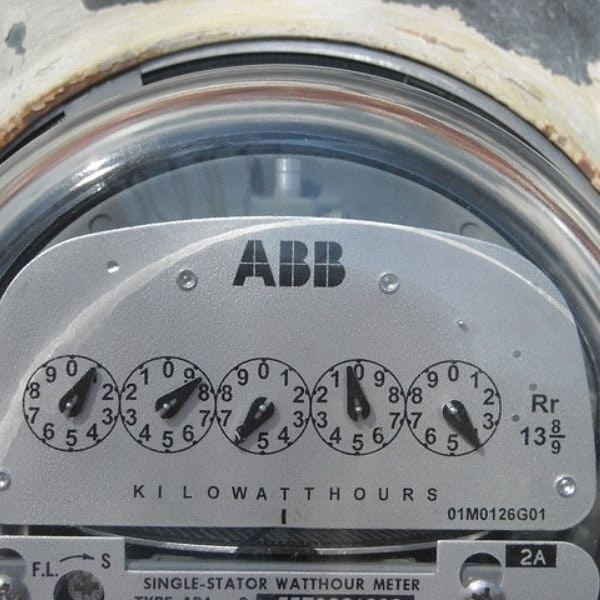
What Are the Uses of Distilled Water?
Due to its purity, distilled water has a variety of uses in both commercial and residential settings.
- One common use for distilled water is in medical facilities, where it is used in laboratory experiments and procedures.
- Distilled water is also used in steam irons, humidifiers, and air conditioning systems because it does not contain minerals that can cause build-up or damage to these appliances over time.
- Additionally, some automotive batteries require proper distilled water, as tap or well water may contain minerals that could corrode them.
- Another popular use for distilled water is in aquariums, which is the safest option for fish and other aquatic life forms.
Tips on Maintaining Your Water Distiller
Always ensure that the distiller is cleaned after every use. This involves wiping down the internal components with a soft cloth, cleaning the boiling chamber with a non-abrasive cleaner, and descaling the unit periodically to remove any mineral buildup.
Keep an eye on the carbon filters and replace them every three months to maintain their effectiveness in removing impurities from the water. Additionally, ensure you use high-quality distilled water to prevent mineral buildup within the unit.
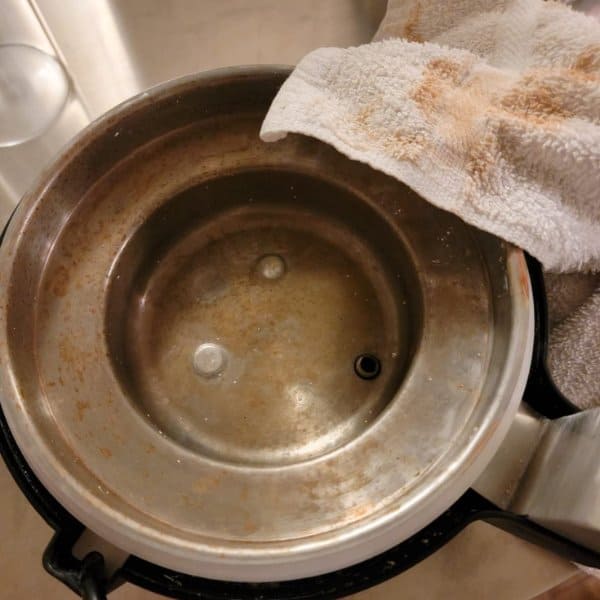
Efficient Alternatives to Water Distillers
Fortunately, efficient alternatives to water distillers can provide you with the same results.
Ultrafiltration Systems
Unlike traditional water distillers, ultrafiltration systems offer a more efficient and cost-effective method of removing impurities from the water. One of the biggest advantages of using an ultrafiltration system over a traditional water distiller is its ability to remove chlorine, bacteria, viruses, and other harmful contaminants. Ultrafiltration’s unique design effectively removes these impurities without requiring excessive energy or maintenance.
Reverse Osmosis Systems
The advantage of reverse osmosis systems over traditional distillers is their efficiency. Distillation requires heating large amounts of water to boiling point, which can be time-consuming and energy-intensive. In contrast, reverse osmosis systems use far less energy while delivering pure, high-quality drinking water for your home or business.
Conclusion
Water distillation is a process that has been used for a long time to purify and separate liquids from solids. Using a water distiller effectively removes impurities from water, including bacteria, heavy metals, salts, and other dissolved particles. However, there are also some downsides to using a water distiller; for example, it may be more time-consuming and slightly more expensive than using a reverse osmosis system.
